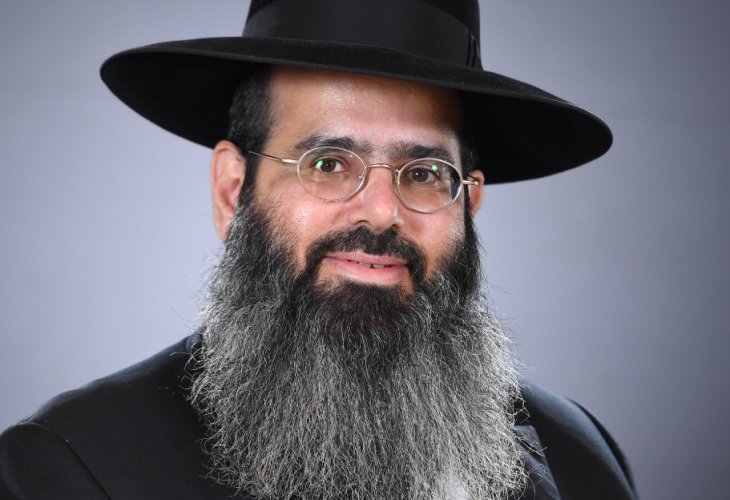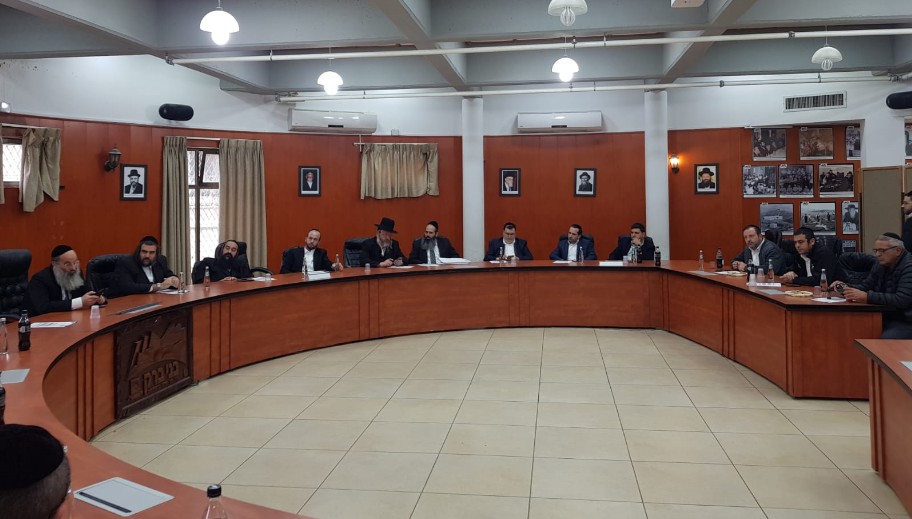Bnei Brak City Council Member: "We Realized the Extent of the Epidemic Too Late"
Bnei Brak's drama unfolds with empty streets, rabbis calling out, and a relentless effort to halt the virus. Michael Kakon, a member of Bnei Brak's city council, speaks candidly.
 Michael Kakon
Michael KakonDifficult. It's tough to find a free moment for a conversation with Michael Kakon, a management member and head of the Infrastructure and Development Department in Bnei Brak. Currently, he is overwhelmed, with requests flooding in for assistance to families of more COVID-19 patients. "There is no doubt that the infection rates in Bnei Brak are higher than many places in the country," he tells me sorrowfully. "We are talking about a quarter percent of the city's residents, and that's too much," he adds.
Do you have an explanation as to why this happened specifically in Bnei Brak?
"I think it's pretty obvious; it's no secret that infectious diseases spread especially in crowded places, among large families. Bnei Brak is blessed not only with large families but also with density. There you have the perfect recipe for the spread of the virus."
Did you prepare for the virus? Did you anticipate such an outbreak?
"Of course, we didn't imagine the magnitude of the outbreak, but we definitely prepared. Initially, we focused mainly on education, publicity, and loudspeakers on the streets. We also activated the municipal police in the city along with the Israel Police for increased enforcement, with Mayor Avraham Rubinstein naturally at the forefront. He holds several professional meetings each day with all relevant parties to communicate the Ministry of Health's guidelines to the residents."
Kakon adds that all this was until a few days ago. "But now we are in a real emergency state, working on all fronts, with all state authorities, to provide help to the isolated, confirmed patients, the elderly, and the disabled. Additionally, thanks to the government offices that quickly mobilized, we managed to establish an isolation complex at the Or Hachaim seminary in the city, with complete accommodations while simultaneously emphasizing strict enforcement of all government decisions according to all the rules the state dictates. We know that it's a matter of saving lives, and as devout believers in the word of Hashem, we are very strict about saving lives."

The Whole World is Surprised
Still, Kakon insists they were indeed surprised by the extent of the epidemic. "Of course, we are surprised; everyone is surprised, the whole world is surprised, all the authorities are surprised, all the citizens are surprised. But with Hashem's help, we are recovering and adhering closely to the policies aimed at reducing public space and thereby preventing the spread."
Kakon emphasizes: "The great leaders of Israel were attentive to the directives all the time. In the Haredi press and anywhere possible, it was published in the name of the great leaders of Israel that it is essential to adhere to the Ministry of Health’s guidelines; therefore, prayers in synagogues were limited to minyanim of ten participants, afterward, they prayed outside, and then even that stopped, until everyone prayed at home or on their balconies. The vast majority of city residents adhere to the guidelines diligently. And remember, this isn't Tel Aviv where there’s one child and a dog in a five-room apartment in front of three screens. This is Bnei Brak, and there is the challenge of large families dealing at home with all the children, without all the devices and technologies."
"Bnei Brak is a unique city," Kakon adds, "the regulations for the whole country do not fit the lifestyle of Bnei Brak. Even if they are careful to stay at home, the danger is not yet removed because someone might meet someone who doesn’t know they are sick at the supermarket and inadvertently spread the disease to another fifteen people in the house. It's a cycle without end. Unfortunately, only now have they understood this, which is why they quickly advanced testing and isolation complexes throughout the city."
Can you tell us about the new testing facility?
Kakon elaborates: "Once the authorities understood the gap in understanding the spread between a dense city and a regular city, they immediately shifted into high gear, and within a day, the Bnei Brak municipality established a facility in the north of the city in cooperation with MDA, with the highlight being symptom-based testing. In other words, anyone who has a fever, cough, or shortness of breath, even if they haven't been exposed to a confirmed patient, after turning to MDA, can come to the facility and be tested." Kakon highlights the change this facility represents compared to others in the country. "In this complex, you can get tested even if you do not come with your private car. Anyone who feels symptoms and doesn't have a car calls MDA, and they send a special ambulance that brings them for the test. Furthermore, in recent days we've also established isolation complexes located at the Or Hachaim seminary. Anyone who requires isolation, and isolation at home does not fully isolate the danger, is referred to the isolation complex where they receive food, accommodation, and all the material and spiritual needs a Jew requires. All this is done under the close guidance of the city's rabbis and community leaders."
How was this not thought of earlier?
"Remember, everything was set up in motion. Initially, testing was only at home, and last week they opened drive-through complexes in three places in the country. Although there is a nearby facility to Bnei Brak located at Ganei Yehoshua in Tel Aviv, the Bnei Brak municipality wanted to help diagnose as many people as possible to prevent further infections and also to allow tests for those who don't have a vehicle."
(Photo: Erik Navon)
Stay Home. Period.
What are the rabbis of the city saying about the situation?
"The rabbis of Bnei Brak say unequivocally that one must listen to the instructions of the Ministry of Health, without tricks or shticks. I can add that the great leaders of Israel decided not to pray in minyan even outside in open spaces. This happened two days before the Ministry of Health guidelines to not pray outside were issued. This was out of an understanding of the situation and the dreadful danger involved. We also cooperate fully with all enforcement agencies, be it the police, and now the army also joined the efforts. Such relationships do not happen overnight; it is a continuous relationship built through normal times, so in emergencies, it becomes easier to operate and understand the needs of communities."
How do you help the elderly and weak populations during this era?
"The municipality's Welfare Department mapped out all the elderly residents who need help and activated all the charity and rescue organizations in the city to assist this public, with shopping, food, and everything necessary. It is moving to see how much Jews want to help Jews during these challenging days."
Kakon also wants to convey a message: "Please, the people of Israel, I am truly pleading, stay home. Stay home. The destroyer takes heavy tolls from us, do not become its accomplice. Unfortunately, even my family members, from my close circle, contracted the virus. Please do not leave your home, for your sake, for your children's sake, for your neighbor's sake, for your parents' sake."

